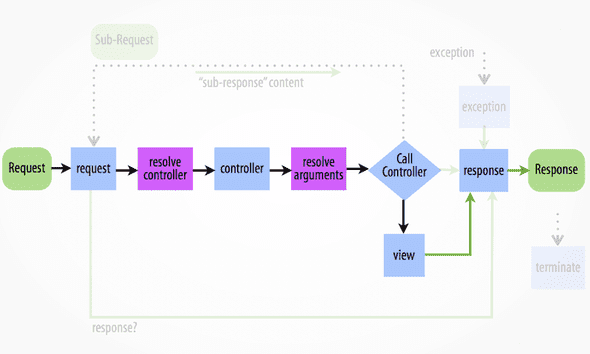Validate Stripe webhooks with Symfony
July 5, 2017 • ☕️ 2 min read
Recently we have changed our payment system at Uniplaces. Some of payment providers are asynchronous to confirm the payment charge (e.g. bank transfers). To handle this asynchronous process we rely on Stripe webhooks to confirm payments. When we receive a payment confirmation we need to be sure that the request is actually coming from Stripe and not from somewhere else trying to confirm a payment that didn’t exist. To archive this, we needed to add an extra security layer to validate all the webhooks requests.
Usually, you would use a Middleware (e.g. Laravel middleware, HandlerFunc in Golang, etc) to tackle this type of problems. Symfony doesn’t use middleware architecture, instead, it uses Kernel Events to allow developers to hook into the Request->Response workflow.
The HttpKernel component provides an interface that formalizes the process of starting with a request and creating the appropriate response.
Internally this handle function is responsible for transforming the Request into the Response following the previous workflow. In each step, Symfony will dispatch an event that can be listened by multiple listeners.
Stripe Request Subscriber
Our task is simple. Create our listener to validate Stripe requests and subscribe it to correct kernel event. As Symfony documentation describe in their website for kernel.request event:
Typical Purposes: To add more information to the Request, initialize parts of the system, or return a Response if possible (e.g. a security layer that denies access).
This is a perfect fit for our use case because, we want to deny access for requests that don’t come from Stripe.
Lets create our Subscriber and subscribe it to KernelEvents::REQUEST Event and define what method do we what to execute
onKernelRequest().
Behind the scenes, the validateWebhook() implementation is using the \Stripe\Webhook::constructEvent from
Stripe SDK to validate the request header signature.
